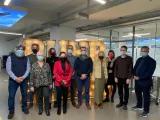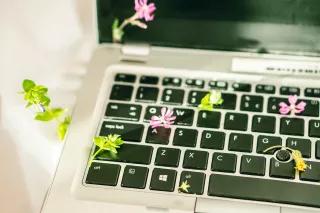
This article was the contribution of the Heinrich Böll Foundation, Thessaloniki office, to the German FIAP e.V. (Research Institute for Innovative and Preventive Job Design) journal "Transition", issue 1|2022. This issue, with the specific title "Green innovations for local transformation processes: European startups as drivers of transition", is based on the experiences and results of the GreenTecLab project, which has been running since 2020 in order to empower green startups to promote climate protection and sustainability.

What could the creation of the first hotel with a zero carbon footprint mean for the future of a tourist-heavy Crete? And how can an agri-farming region use residues from tree pruning and cheese-making to produce a high-quality product such as whey, without any energy burden? These and many other things are not just interesting ideas and sketches on a piece of paper. They have already become reality or they are in the process of being implemented through the GreenTecLab project.
GreenTecLab is part of the European Climate Initiative (EUKI) and is being implemented in Crete, as well as in Andalusia, Spain and Nitra, Slovakia. It supports green startups and projects, actively encouraging young people - especially young women - to develop and realise green business ideas. It provides free seminars and workshops on green entrepreneurship, helping participants to develop their business idea, cost it, improve their competitiveness and innovation, learn about ways to save energy and protect the environment, learn about good practices and meet other startups from all over Greece. It also organises a business ideas competition every year and awards the five most innovative proposals, which it supports by offering the winning teams one year of mentoring to find the right funding, to promote the idea (marketing), to learn about global markets and to network with the right people, institutions and investors. An important part of this objective is achieved through the five winning teams travelling to Germany for a few days to meet other startups there, discuss with them their current challenges and start building a network for future collaboration.
The rural-urban divide and transformative social innovation
This is where the role of the Heinrich Böll Foundation, Thessaloniki office, comes in, funding this trip as these costs in the original project were not covered by EUKI funding. Supporting this project is in line with one of the aims of the Heinrich Böll Foundation, which is to bring the rural-urban divide into the public debate, to add value to rural areas of Greece (in this case Crete) and to provide opportunities for young people there to participate in the green economy and entrepreneurship.
More specifically, concentration of population, power and opportunities in the big urban centers is a typical characteristic of Greece that poses a clear and multi-faceted urban-rural divide. In addition, the long financial crisis and the demographic challenge set the future perspectives of Greek rural areas at risk. Schools are closing, enterprises are shutting down, young families are moving to bigger cities. At the same time, major challenges are also arising in the large urban centres that are receiving this population (e.g. housing, waste management, etc.). Developing and strengthening green and social startups can help to alleviate the pressures currently facing local communities by providing employment opportunities and responding to social needs in ways that do not harm the environment.
In general, partners and groups participating in the activities of the Heinrich Böll Foundation have the opportunity to take an active role in a participatory socio-ecological transformation that responds to the issues of a just energy transition and circular economy, at local, national and European level, as well as to gender issues.
The Foundation promotes transformative social innovation, characterised by the empowerment and interconnection of local and supra-local networks, while its involvement is not limited to the successful completion of a project, but instead contributes to a long-term and open planning focusing on meeting social needs.
The specific social features of startups
The Heinrich Böll Foundation attempts to highlight alternatives and policies that lead to the transformation of the Greek economy and society towards a model of ecological development, gender democracy and intercultural inclusion. It works, among other things, for a just ecological transformation of the society and the economy, with its main characteristics being energy equality, carbon neutrality, reduction of plastic waste, circular economy, green community development. Green and social startups, precisely because of their specific features, can make a positive contribution in this direction by responding to multifaceted social and environmental challenges. They are characterised by innovation, without which economic activity is unable to adapt to the rapid evolution of the climate crisis facing the planet and of course Greece, while at the same time they promote alternative business models of circular economy that generate value at the local level.
In particular, green and social startups are differentiated from other business initiatives because they are able to address local needs in partnership with local communities, mobilise financial and non-financial resources and empower local communities. They thus demonstrate that they can deal with international challenges at the local level while at the same time having high levels of social innovation, i.e. a focus on new ideas, new products and services, new social relations and social practices.
Linear production-consumption model and climate challenges
The vision of the Green Deal, the strategy announced by the European Commission to make the European Union 'climate neutral' by 2050, is summarised in three objectives:
- Zero net emissions of greenhouse gases by 2050
- Economic growth decoupled from resource use
- No people and no regions left behind.
In order to achieve all three objectives in a balanced way, fundamental changes are needed in the current economic model of our societies, which is based on the principles of the market economy and follows a linear production-consumption model. In this model, the dominant unit of the economy is the enterprise, which has as its primary objective the creation of profit for its owners/shareholders. Both the success and the very survival of the enterprise are identical with the maximisation of profit, which is achieved if the enterprise produces and sells more and more products. Similarly, in this model the individual is only valuable when he or she acts as a consumer, as a buyer of the company's products.
At the same time, the way our economy works today, the production and consumption of products, is also linear: we take raw materials from nature, make products, use or consume them, and discard them when they no longer work or are no longer needed. This model has huge demands on natural resources, energy, and water, and creates pollution and mountains of waste to manage. It is also extremely wasteful, as it considers as 'waste' and 'rubbish' materials that could be reused by re-entering the production chain.
In contrast, in a circular economy model, 'waste' is minimised as the products we use either last longer, are repaired, biodegraded or used to create new products.
In short, if the ‘green transition’ is simply the transformation of businesses into ‘green’ industries that seek to sell more and more ‘green’ products to those people who have the money to buy them, nothing substantial will change: our economy will continue to consume more and more natural resources while those who were marginalised in the past will continue to remain so.
Circular economy, cosmolocal production, climate neutrality
This transformation from a linear to a circular economy supports the transition towards climate neutrality as it requires significantly less energy resources to maintain it (less carbon emissions) but also generates less waste, the management of which, whatever it is (landfill, incineration or even recycling), is a source of environmental pollution.
Climate neutrality will be achieved through the green transition, which must be socially and economically just. This means that the creation of new jobs and economic opportunities is a one-way street for this transformation of the economy and is already being promoted by the central European and national mechanisms. New needs for services and products will enrich the standardised way of production and sale, giving a new impetus to the way economic transactions are perceived.
Production chains that are as localised as possible can meet local needs with a smaller ecological footprint, thus helping to protect the environment. ‘Cosmolocal’ production (cosmolocalism: ‘design global, manufacture local’) can help to create another economic model that respects the environmental and social limits of the planet. This is the direction in which the GreenTecLab project is moving, which is why it is supported by the Heinrich Böll Foundation.






